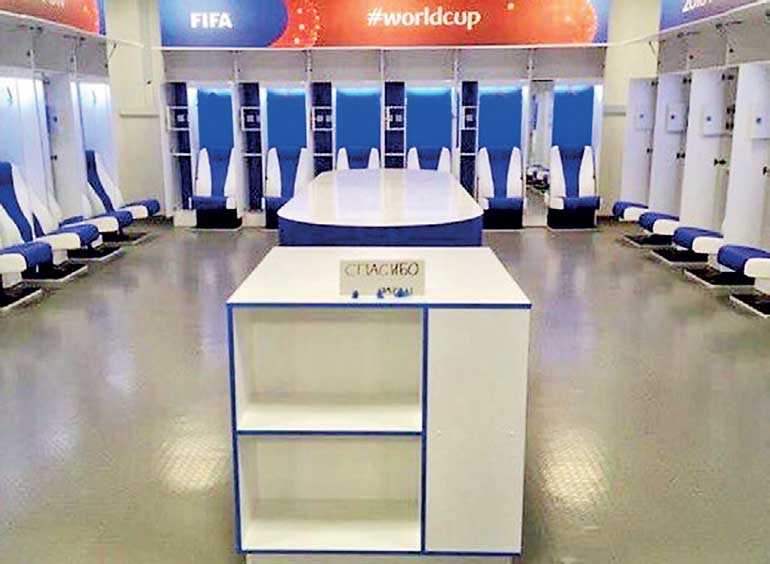Tuesday Feb 17, 2026
Tuesday Feb 17, 2026
Tuesday, 24 July 2018 00:00 - - {{hitsCtrl.values.hits}}

A popular video clip going around in social media shows how the Japanese Football Team cleaned and tidied the dressing room and their spectator stand, after they lost their match recently and was getting ready to leave for home.
To some, this was surprising and even unbelievable. Having been to Japan over 30 times and having worked with the Japanese, this was not surprising to me at all. Many were the comments about their 5S practices, etc. This attitude stems from the Japanese culture of respecting others and being considerate to others and their philosophy that the other person is more important than you. This is a fundamental trait of the Japanese and not a mere practice of 5S.
My first experience of this philosophy was during my first trip there in 1980. When we were having a meal with some Japanese people I noticed that they never poured a drink for themselves first. I quickly understood that you are expected to fill the glass of the person seated next to you first and he is expected to fill your glass in return.
The Japanese would always observe your glass, and the moment the level drops they would fill it. This is the concern for the other person and embodies the philosophy and practice of the other person being more important. Some even say that their desire to produce high quality goods stems from this same philosophy of ensuring that the other person is never inconvenienced by an inferior product.
In the training centre lobby if you take a drink from the vending machine or eat something there, they would always clean up before leaving. They want to make sure that the place is clean and neat for the next person. In the use of toilets too they follow this philosophy.
During my course in 1980 our programme had a home visit. On the last day in Japan the home visit family came to Tokyo to bid the two of us Sri Lankans goodbye. They brought fruit and sat in the lobby of the hotel and peeled them and put all the peels and the cores into a bag they had brought all the way from Yokohama and took the waste away back to their home. They cleaned the lobby table and brought it up to the standard as if a janitorial service had just done their job.
The Japanese persons I worked with were always critical of our Sri Lankan janitorial services system. They believe that by having janitorial services, office attendants, cleaners, etc., we tend to believe that we have a right to dirty our workplace and get someone else to clean.
This was substantiated when I was in a group of Sri Lankans who travelled to Germany on a study tour and stayed in an apartment hotel. Someone got an idea to cook a Sri Lankan meal and have a party in one of the rooms. We enjoyed the evening partaking of Sri Lankan food after a week of eating spice-less German food. In the process we had spilled seeni sambol in several places, fish curry all over the writing table and so on. The room was a mess.
When it was time to end the party I suggested that we all get together and clean the place. “Don’t touch it,” said the occupant of the room and the chief organiser of the party. “The room charge we have paid includes the clean-up,” he said. I said fine, but what would the hotel think of us Sri Lankans? “Who cares?” said he.
I believe this sums up why we will never be featured in a video like the Japanese.
[The writer is former President, Japan-Sri Lanka Technical and Cultural Association (JASTECA) and winner of the APO Regional Award for promoting productivity in the Asia Pacific Region.]